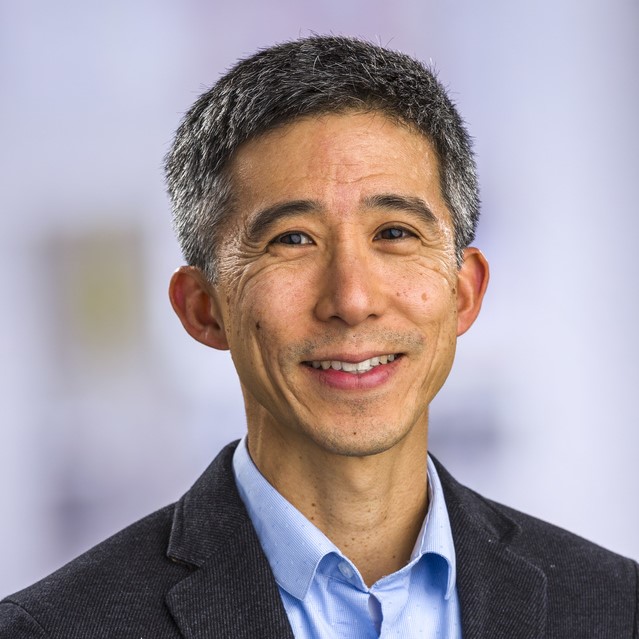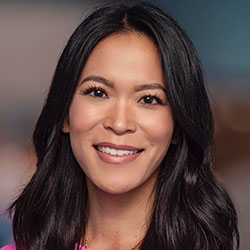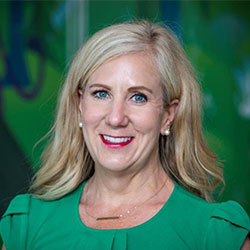Cancer Predisposition Clinic
What is the Cancer Predisposition Clinic?
The expert team at Seattle Children’s Cancer Predisposition Clinic cares for children who are born with a gene change (mutation) that increases their chances of developing cancer in childhood. This is called having a cancer predisposition syndrome. It does not mean a child will have cancer, but they are at greater risk compared to other children.
All during childhood, we assess your child’s risk for cancer and carry out screening. Their screening plan is tailored to their condition and based on the latest medical evidence. Such screening may allow us to find and treat tumors early, leading to better outcomes. In some cases, steps can be taken to lower your child’s risk of cancer.
-
What causes cancer predisposition syndromes?
Researchers estimate that about 10% of childhood cancers have a hereditary cause. Most cancers are due to changes in genes that happen during a person’s life. Those gene changes are found in the tumor only and not in healthy cells. They are not passed down in the family.
In children with a cancer predisposition syndrome, the gene change is present in all cells of their body.
- Most often, a child inherits the syndrome from a parent who has the gene change.
- Sometimes a child is the first person in their family to have the gene change. The gene change may be present in their parents’ egg or sperm or may happen as the embryo grows very early in pregnancy. This is called hereditary because the child can pass it on to their future children.
Who can benefit from the Cancer Predisposition Clinic?
Most children come to our clinic for screening and guidance on managing a cancer predisposition syndrome. Some come to find out if they have a syndrome.
A child may have a cancer predisposition syndrome if they or their family have a history of:
- More than 1 tumor in the same person. This is called multiple primary tumors or bilateral/multifocal tumors.
- Tumors with a strong hereditary component. Examples include retinoblastoma, adrenocortical carcinoma, pheochromocytoma/paraganglioma, pleuropulmonary blastoma and medullary thyroid carcinoma.
- Early-onset tumors, such as rhabdomyosarcoma, in a young child.
- The same tumor in more than 1 family member.
- Tumors along with other symptoms such as developmental delays, birth defects or skin abnormalities (like areas of darker skin called café-au-lait spots).
What’s special about the Cancer Predisposition Clinic at Seattle Children’s?
We provide a medical home for children, teens and young adults with cancer predisposition syndromes. Our team works together and with you to help manage your child’s cancer risk so they have the best possible outcome. Our multidisciplinary team provides the most effective, up-to-date screening available to children at risk of childhood cancer. We also partner with other experts at Seattle Children’s to make sure your child receives complete care for their unique condition.
If you would like an appointment, ask your primary care provider to refer you to our Cancer and Blood Disorders Center.
The clinic is part of our Cancer and Blood Disorders Center. If you would like an appointment, ask your child’s primary care provider to refer you. If you have a referral or would like a second opinion, contact us at 206-987-2106 or by email.
Providers, see how to refer a patient.
-
The expertise you need for complete care
- Our team combines the expertise of a childhood cancer specialist (pediatric oncologist), a certified genetic counselor and nurse coordinator to provide the best care for your child.
- We are skilled in caring for children with cancer predisposition syndromes. We will give your child evidence-based screening services designed to find tumors early. This allows early treatment, which may improve survival and lessen long-term health issues related to the tumors or treatments.
- As part of a world-class academic pediatric hospital, we have access to specialists in many fields of medicine. One example is radiologists who can perform and interpret whole-body MRI (magnetic resonance imaging) scans.
- If screening detects cancer, your child will receive care from Seattle Children’s doctors known worldwide for treating children with complex cancers. We provide a full range of treatment options. Our patients have access to research studies (clinical trials) of new treatments that many centers do not offer.
- We work closely with the High Risk Cancer Surveillance Clinic at Fred Hutchinson Cancer Center. We refer adult relatives of our patients there for testing and screening. When our patients are ready, we help them transition to adult care at SCCA.
-
Support for your whole family
- Having a child with a cancer predisposition syndrome can be stressful for the whole family. Our team supports your child and family through these challenges. If needed, we can refer you to mental health professionals.
- We help you fully understand your child’s condition and support you in making the choices that are right for your family.
- Seattle Children’s serves children and families from around the Northwest and beyond. Whether you live nearby or far away, we can help with financial counseling, schooling, housing, transportation, interpreter services and spiritual care. Read about our services for patients and families.
Services We Provide
All during childhood, we work with your family to manage your child’s risk of cancer and to detect any cancer as early as possible. Our team:
- Coordinates genetic testing to find changes in genes that may increase cancer risk.
- Provides genetic counseling to help you understand your child’s and family’s risk for cancer, based on medical history, family history and genetic test results.
- Makes a screening plan tailored to your child‘s unique needs, based on the best, most current medical information.
- Carries out screening for your child’s specific condition. Screening plans may include physical exams, laboratory tests, imaging studies and assessments by providers in other subspecialties.
- Detects cancers early as a result of regular screening.
- Offers psychology and social work support for the emotional challenges of having a cancer predisposition condition.
- Provides educational resources and connects you with other families affected by these syndromes.
- Offers genetic counseling about the risk of future children having a cancer predisposition syndrome.
Conditions We Monitor and Manage
We care for children with many types of cancer predisposition syndromes, such as:
- Beckwith-Wiedemann syndrome
- Constitutional mismatch repair deficiency (CMMRD)
- DICER1 syndrome
- Familial adenomatous polyposis (FAP)
- Familial neuroblastoma
- Hereditary paraganglioma/pheochromocytoma syndrome
- Hereditary retinoblastoma
- Juvenile polyposis syndrome
- Li-Fraumeni syndrome
- Multiple endocrine neoplasia type 1 (MEN1)
- Multiple endocrine neoplasia type 2 (MEN2)
- Nevoid basal cell carcinoma syndrome (Gorlin syndrome)
- Peutz-Jeghers syndrome (PJS)
- PTEN hamartoma tumor syndrome
- Rhabdoid tumor predisposition syndrome
- Von Hippel-Lindau syndrome
- WT1-related Wilms tumor syndrome
Children with neurofibromatosis and tuberous sclerosis complex are cared for by separate multidisciplinary clinics at Seattle Children’s.
Cancer Predisposition Clinic Team
Our clinical team includes a pediatric oncologist, certified genetic counselor and nurse coordinator.
Team
Cancer Predisposition Clinic Providers
-
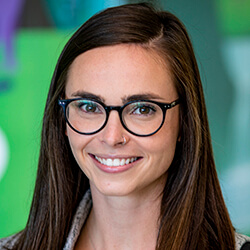
Riley Coyle, MS, CCLS, Inpatient Solid Tumor team
-
Alli Olsen, BSN, RN
-
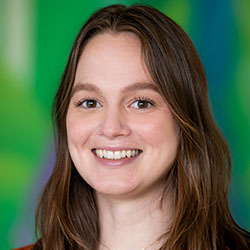
Natalie Waligorski, MS, MPH, LCGC
Partnering with other experts
We refer children who need cancer treatment to the Cancer and Blood Disorders Center team.
In addition to serving children with cancer predisposition syndromes at this clinic, Seattle Children’s offers genetic counseling to children being treated for cancer here or receiving care through our Cancer Survivor Program.
Contact Us
If you would like an appointment, ask your child’s primary care provider to refer you to the Cancer Predisposition Clinic at the Cancer and Blood Disorders Center.
If you have a referral or would like a second opinion, contact the Cancer and Blood Disorders Center at 206-987-2106 or by email.
Providers, see how to refer a patient.
Schedule an appointment
- How to schedule an appointment at Seattle Children’s.
- If you already have an appointment, learn more about how to prepare.
- Learn about resources such as useful links, videos and recommended reading for you and your family.
Telemedicine at Seattle Children’s
You may be offered a telehealth (virtual) appointment. Learn more.
Paying for Care
Learn about paying for care at Seattle Children’s, including insurance coverage, billing and financial assistance.
